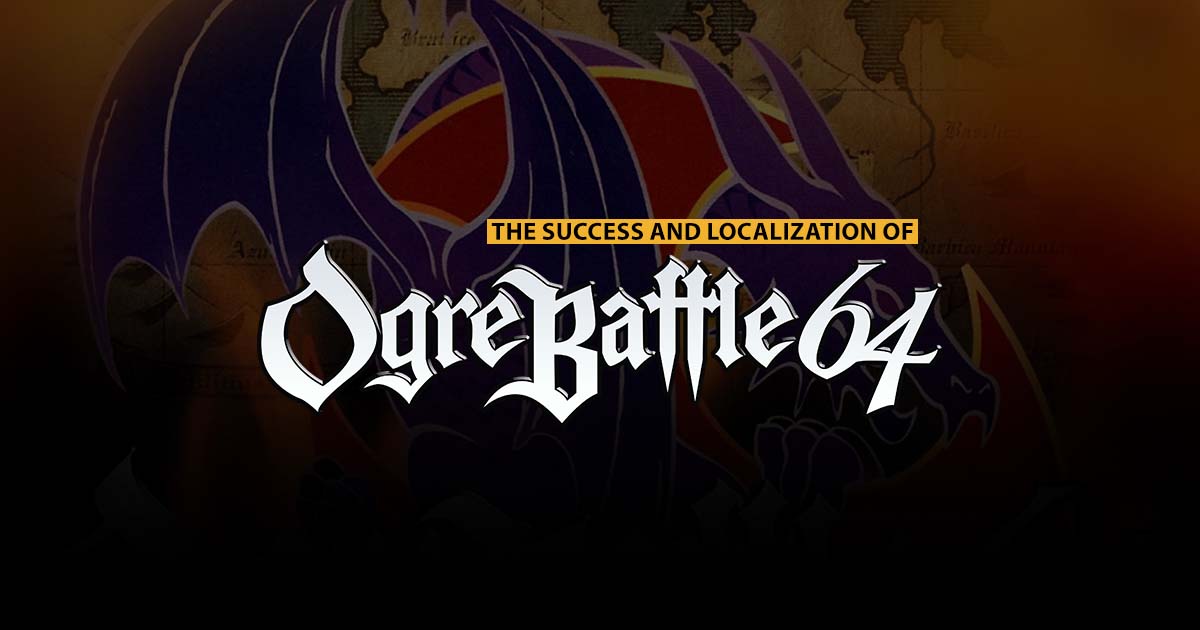Don’t Makes These Common Localization Mistakes

6 Questions to Answer Before Talking to a Localization Vendor
05/01/2022
7 Reasons to Localize Your Game for Latin American Spanish
05/05/2022Content updated May 3 2022
We all make mistakes, but making a mistake when it comes to localizing your game could cost you — literally. Some of the biggest game development companies in the world have stumbled when it comes to localization, so don’t feel bad if you’re guilty of a few of these common loc mistakes.
Mistake 1: Thinking localization isn’t a big deal
Underestimating the importance or scope of localization is a lot of developer’s first mistake. The United States only holds a fraction of the world’s gamers, so localizing means more players and more revenue no matter how many languages you localize to. It shouldn’t be looked at as a last minute addition, either. True localization takes time and effort and it’s not really something you can leave to a week before release. Making sure your game and your team is ready to localize from the beginning will save you a lot of time and energy once you’re finally ready.
Mistake 2: Hard-coding text
Speaking of making sure your game actually can be localized from the start — don’t hard-code your text in the source code. It does save you time in development, but it’s a costly nightmare to localize games not built for localization. The developers will have to go back and trace every single instance of each string in order to replace it with the new text. Consult with your dev team to make sure they’re following the best practices for internationalization.
Mistake 3: Not doing your research
Each country has different standards, different genre preferences, and different preferred platforms, among other things. Just localizing into what you think are the most popular languages might not be what’s best for your game, nor is not considering localizing things other than the in-game content. Localization firms can help guide you through this, but you should probably have a good idea of which languages and what content you should be localizing before starting your loc project.
Mistake 4: Forgetting about culturization
Aside from changing text from one language to another, developers should also be keeping in mind culturization when taking their game to a new market. This applies to both technical changes — in-app purchases aren’t allowed in some countries, for instance — and content changes, like taking into account cultural sensitivities and references. For example, the Japanese version of Fallout 3 doesn’t include the option to detonate an atomic bomb in the Power of the Atom quest — for obvious reasons. Even small details like a reference to a popular American celebrity or TV show could be changed to a celebrity or show that’s popular in the new market. Luckily, you already have people who can help spot any problem areas — your translators.
Mistake 5: Not providing enough context to translators
While terms like “gank” or “broad sword” are pretty familiar to English speaking gamers, they might not be so easily translated when taken at face value. Along with the actual content, providing additional contextual information like style guides, glossaries, character bios, and even screenshots or other visual examples can be immensely helpful to your translators.
Mistake 6: Hiring translators who aren’t gamers
Gaming really is it’s own language; so hiring translators who are gamers can make all the difference. And not just any gamers — gamers who regularly play the genre of game they’re translating. Someone who plays RPGs every week is going to be better at translating your RPG, since they’re already familiar with the format, terminology, character types, etc. Along with genre, what type of platform the translators play on also matters since they’d be more familiar with the app store setup, controls, and more.
Mistake 7: Not testing on devices after localization
Games are tested rigorously before release, but have you tested after you’ve localized? And not just tested, but tested on the actual device your game will be played on? Localization can cause text overruns, font display issues and other problems, so make sure to check the game on all the platforms it’ll be available on and adjust accordingly.
Avoid making a localization mistake by checking out our post on Questions to Ask Before Talking to a Localization Vendor.






